Lewis Ada H Middle School serves 491 students in grades 6-8.
The student:teacher ratio of 22:1 was higher than the Pennsylvania state level of 13:1.
School Overview
Grades Offered
Grades 6-8
Total Students
491 students
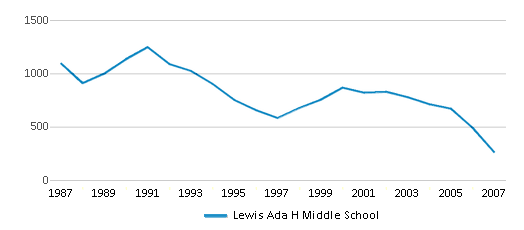
Total Classroom Teachers
22 teachers
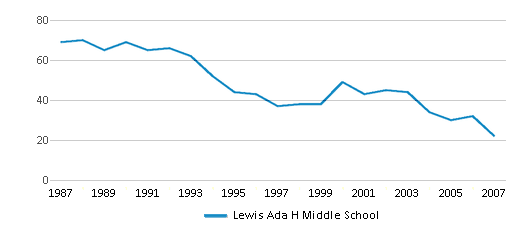
Students by Grade
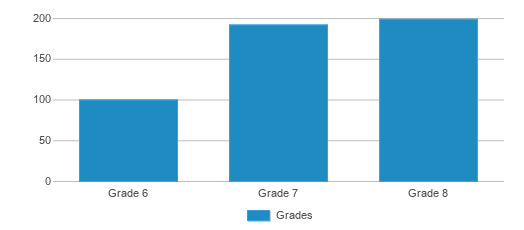
School Rankings
Student : Teacher Ratio
22:1
13:1
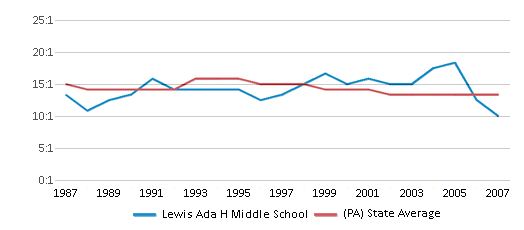
American Indian
1%
n/a
Asian
n/a
5%
Hispanic
n/a
15%
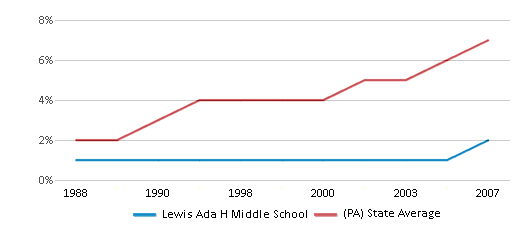
Black
99%
14%
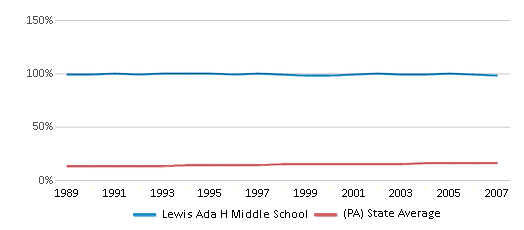
White
n/a
61%
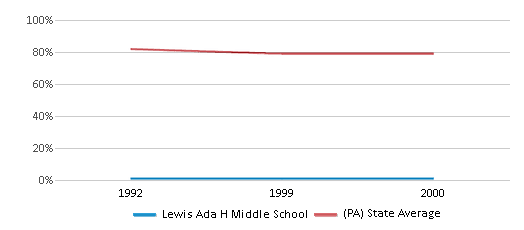
Hawaiian
n/a
n/a
Two or more races
n/a
5%
All Ethnic Groups
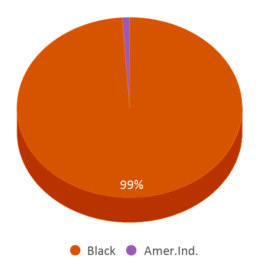
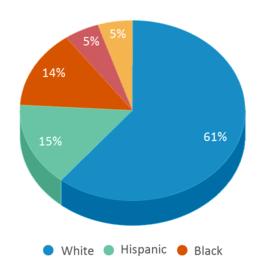
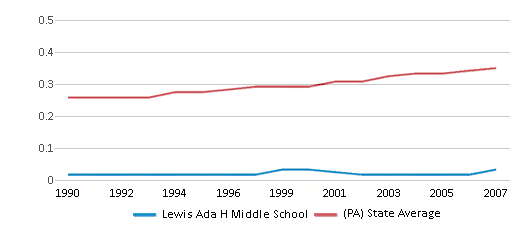
Eligible for Free Lunch
74%
60%
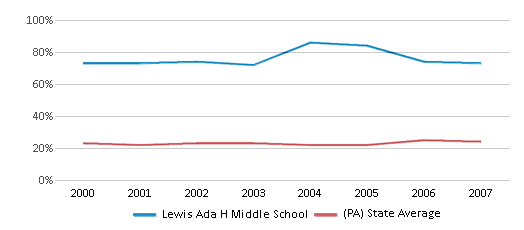
Eligible for Reduced Lunch
10%
2%
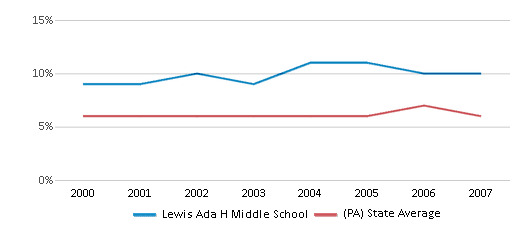
School Statewide Testing
School District Name
Source: National Center for Education Statistics (NCES), PA Dept. of Education
Frequently Asked Questions
How many students attend Lewis Ada H Middle School?
491 students attend Lewis Ada H Middle School.
What is the racial composition of the student body?
99% of Lewis Ada H Middle School students are Black, and 1% of students are American Indian.
What is the student:teacher ratio of Lewis Ada H Middle School?
Lewis Ada H Middle School has a student ration of 22:1, which is higher than the Pennsylvania state average of 13:1.
What grades does Lewis Ada H Middle School offer ?
Lewis Ada H Middle School offers enrollment in grades 6-8
What school district is Lewis Ada H Middle School part of?
Lewis Ada H Middle School is part of Philadelphia City School District.
Recent Articles

What Is A Charter School?
Explore the world of charter schools in this comprehensive guide. Learn about their history, how they operate, and the pros and cons of this educational innovation. Discover key facts about charter schools, including admission policies, demographics, and funding, as well as what to look for when considering a charter school for your child.

10 Reasons Why High School Sports Benefit Students
Discover the 10 compelling reasons why high school sports are beneficial for students. This comprehensive article explores how athletics enhance academic performance, foster personal growth, and develop crucial life skills. From improved fitness and time management to leadership development and community representation, learn why participating in high school sports can be a game-changer for students' overall success and well-being.

February 05, 2025
Understanding the U.S. Department of Education: Structure, Impact, and EvolutionWe explore how the Department of Education shapes American education, from its cabinet-level leadership to its impact on millions of students, written for general audiences seeking clarity on this vital institution.





